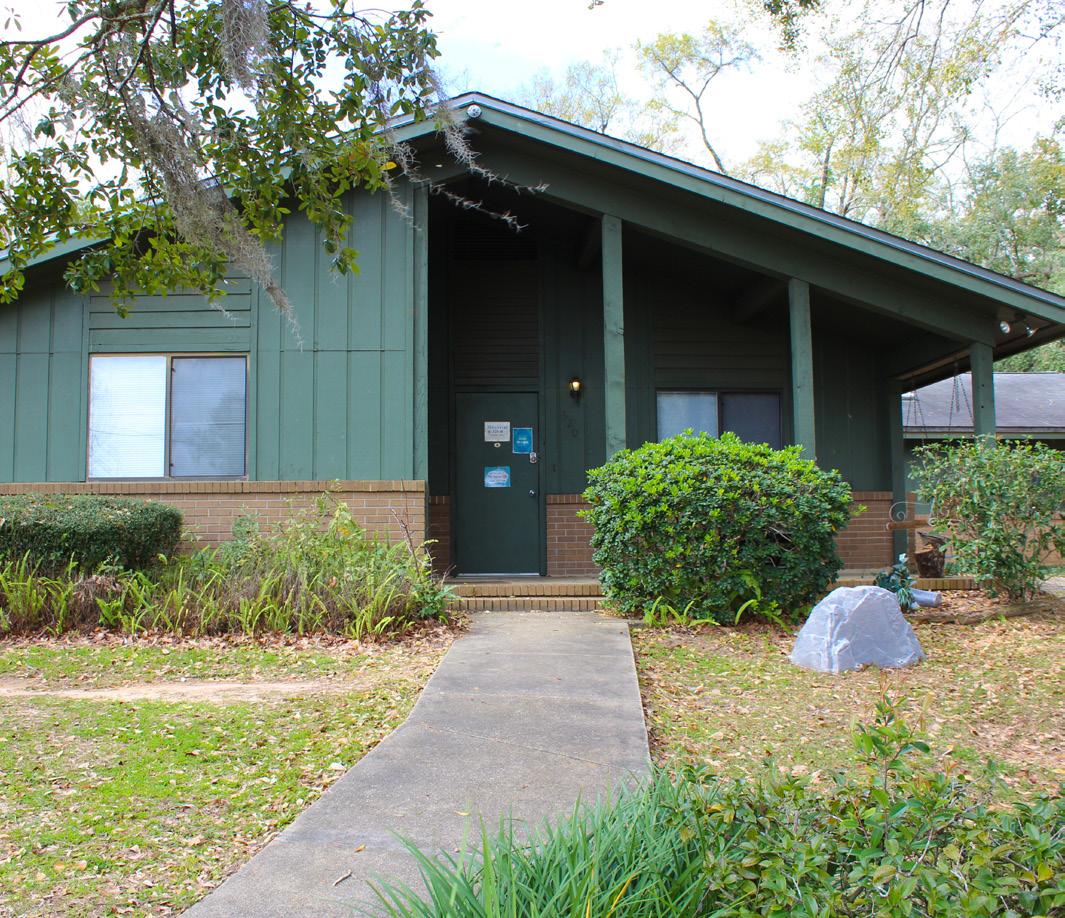
3 minute read
THE IMPACT OF PARTNERSHIPS: THE SOUTHERN SCHOLARSHIP FOUNDATION AND THE COLLEGE OF EDUCATION
By Kevin Derryberry The Impact of Partnerships: The Southern Scholarship Foundation and the College of Education
“F or me, Southern Scholarship Foundation was the key to the door of going to Florida State,” recalls Patricia (Duggins) Sigmon who earned her B.S. (’66) and M.S. (’67) in health education at FSU.
While a student, Sigmon lived in the Future Educators of America (FEA) house on Palm Court and both she and her husband Keith (B.S. ’66) remember the house fondly. “It had a warm feel to it, with a great group of girls. It was a neat little place.”
Today, Palm Court serves as an access road to the sorority houses of Park Avenue and Calhoun Street. A parking lot replaced the last of the buildings, but in the 1960s, the Sigmons remember the Palm Court House of the Southern Scholarship Foundation as “an old three story house that had a wide front porch with a swing. It was only a block from Westcott and the Mecca, and just across from Old City Cemetery.”
“Men weren’t allowed past the kitchen,” Sigmon remembers, “not that there was much to see. There were four bunks to a room, no air conditioning and communal desks.” Though she’s quick to add that the women who filled Palm Court made it a home.
The Southern Scholarship Foundation has provided affordable housing for thousands of students at Florida State University since its founding in 1953 by former College of Education Professor and Dean Mode Stone.
While the Southern Scholarship Foundation provides a place for students of any program who need support to cover housing costs, more than 800 College of Education students at FSU have directly benefitted from Stone’s vision of a communal living arrangement for students who could not afford the living expenses of attending college.
Stone’s daughter, Nancy Thompson, recalls the impetus for the Southern Scholarship Foundation. “I was probably six years old when one of the college boys or high school boys came to our front door and said, ‘Dr. Stone, I would like to go to college, but I have no money,’ and so my dad started thinking.”
Stone was a professor of teacher education and knew that hard-working students could succeed if he eliminated the financial barriers to education, so he looked for a solution. During WWII, the Army Air Corp had built barracks on the western side of campus, so Stone reached out to members of the community to provide funds to rent one of the unused buildings for the first three students.
The very first of whom was Enoch Hanna (B.S. ’53), a career teacher whom Stone first met while speaking at Hanna’s high school graduation. The experience left an impression on Hanna that would last the rest of his life. “To see so many people that were interested in seeing us get an education impressed us and we wanted to help those that we came into contact with to have the same opportunities.”
Keith and Patricia Sigmon




Many fellow alumni of the Southern Scholarship Foundation and Florida State University have shared Hanna’s impression and have chosen to give back to support both the College of Education and the Southern Scholarship Foundation.
In 2019, the Sigmons completed their pledge of $100,000 to the R. Keith and Patricia Duggins Sigmon Endowed Scholarship in Education, which supports education students living in Southern Scholarship Foundation housing. The Sigmons have been incredibly generous to Florida State, having created an endowment in the College of Business, a football scholarship with Seminole Boosters and a sizable commitment to support their endowments from gifts in their estate.
This year’s Sigmon scholar, Claudia Berroa, is a first-generation college student in her junior year of the combined bachelor’s/master’s pathway in elementary education and a resident in Southern Scholarship Foundation housing. Berroa describes the biggest barriers to her success as fear of the “inability to pay off tuition, textbooks and housing without taking out loans.”
“My parents always encouraged me to put my studies before anything,” says Berroa. “Although they work full time and pick up extra shifts every week, they do not have enough to help me pay for college after they have paid their bills.”
Thanks to the support of the Sigmons and many other donors to the College of Education and Southern Scholarship Foundation, when Berroa graduates, she will be able to focus on her students, not on her student loans. n







